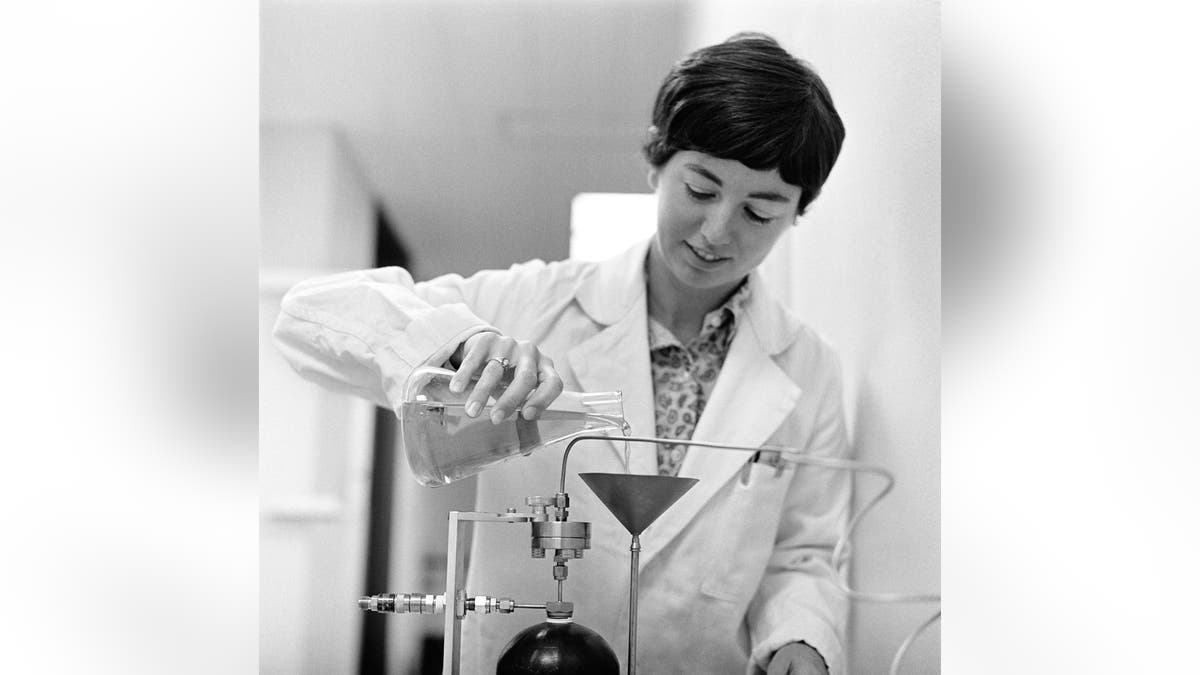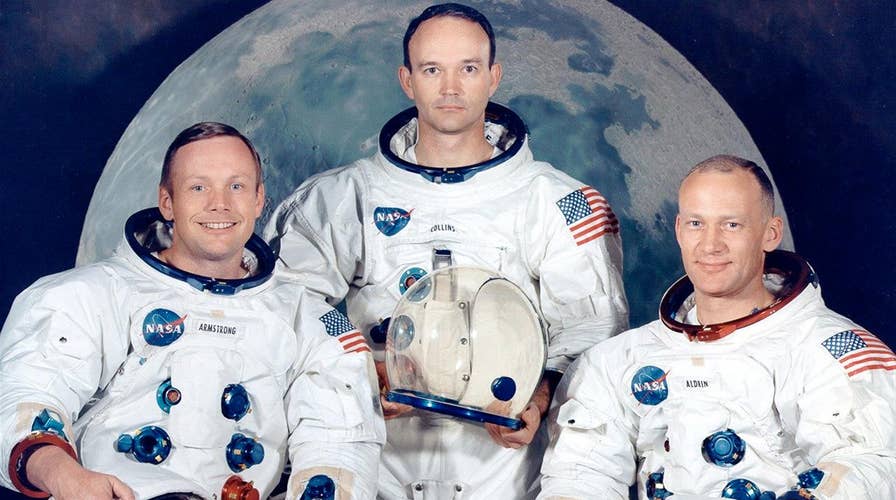Apollo 11 Moon landing: A brief timeline from 1961 to 1969
Apollo 11 landed on the Moon on July 20, 1969. Here is a brief timeline of events that lead to the historic moment, from President Kennedy's call to action in 1961 to 'The Eagle has landed' in 1969.
As the 50th anniversary of the historic Apollo 11 Moon landing nears, NASA has released never-before-seen footage of scientists checking the lunar samples that were brought back for signs of life.
The previously unseen 16-millimeter footage shows biologists and chemists at NASA’s Ames Research Center in California working in a specially designed cleanroom performing a variety of experiments.
“We were really concerned about contaminating the samples with our own bacteria,” said now-retired biologist Caye Johnson, in a statement. “We had to be careful that we didn’t introduce a microbe into the samples and then falsely say that we’d found life.”

Biologist Caye Johnson prepares a vitamin mixture for the petri dishes for the lunar biological sampling experiments at NASA’s Ames Research Center in 1969. (Credit: NASA/Zabower)
APOLLO 11: SECRET NIXON SPEECH REVEALS WHAT WOULD HAPPEN IF ARMSTRONG AND ALDRIN COULDN'T COME BACK
The video has been posted to NASA's YouTube channel and can be seen below.
Although cross-contamination is still an issue for space missions, NASA said that the first manned mission to the Moon was especially important, given the contact with the lunar samples.
The exterior of the transport package that the lunar soil was in was sterilized prior to being opened. The samples were "contained like a nesting doll in jars within jars within bags," and were opened in an "extremely clean environment," the government agency added in the statement.
The researchers used glove boxes and sealed boxes with flexible gloves to provide "an additional biological barrier by using higher air pressure," in an effort to stop contamination.
It may seem trivial now, but 50 years ago, NASA could not rule out life on the Moon, given that bacteria live in all types of environments.
“Why were we doing 300 different environments? Because on Earth today, bacteria live in all sorts of strange environments that you wouldn’t expect,” Johnson added.
After several months of testing, including the use of microscopes, nutrients provided to "encourage the growth of any potential organisms," no life was found.
In June, the space agency said it would give additional scientists and researchers the opportunity to look at rock samples collected from the Moon from the various Apollo missions using 21st-century technology.
From 1969 to 1972, 12 astronauts brought back lunar samples weighing a total of 842 pounds. Some of the rocks and soil samples were vacuum-packed on the Moon and have never been exposed to Earth's atmosphere. Some were frozen or stored in gaseous helium after Apollo 11 splashed down and have remained untouched since.
CLICK HERE TO GET THE FOX NEWS APP
Be sure to catch the America’s News HQ Apollo 11 50th anniversary special on Fox News on Saturday, July 20 at 12 PM EDT.




















